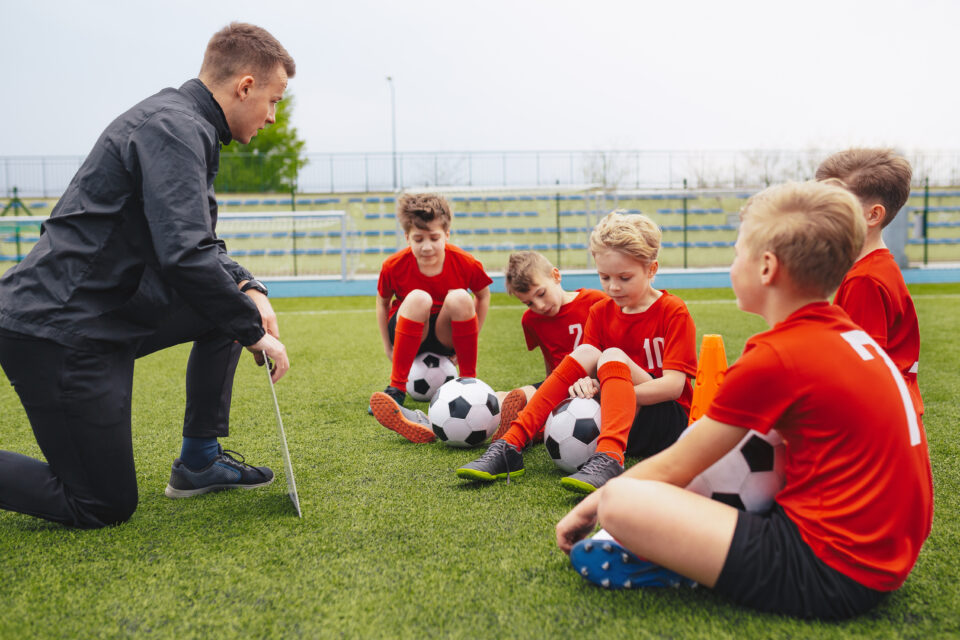Learning from Losing
It’s never fun to lose, whether it’s a basketball game, a dance competition or simply a round of Uno. Nevertheless, no matter how hard you try, losing is inevitable (unfortunately). There are, however, important lessons that we can benefit from learning as a byproduct of losing. We’ve all been there when the angry dad lets loose on the Upward referee for a “bad call”—better that our kids learn now rather than later (or not at all). While every good parent wants their child to succeed, sometimes the best thing you can do is let them lose and walk them through how to handle it in a healthy way. Here are some of the essential lessons your kids can take away from losing a sporting competition—or from not making the team in the first place.
YOUR WORTH IS NOT IN WINNING
Your identity is not found in your achievements, your performance or your perfection. It’s okay for your kid to learn that they’re going to fail sometimes in life, even when they try their best and want it badly. Brené Brown, a shame and vulnerability researcher, shares that “Daring is not saying, ‘I’m willing to risk failure.’ Daring is saying ‘I know I will eventually fail, and I’m still all in.’” Every worthwhile act, from crafting an art piece for a competition to pushing your body in a sporting event, is an act of vulnerability and courage that requires risk. If your kids only view “success” as being #1, they will quickly become disheartened, for losing is bound to come around sooner or later. Moreover, they might begin to fear trying new things they don’t think they will be good at. Remind them that your love for them is not conditional based on the number of wins they accrue or how well they perform.
IT’S OKAY TO FEEL SAD
Let’s be honest: Losing stinks. There’s a reason no one likes to lose. It’s humbling, frustrating and often embarrassing to admit that someone played better than you. Nonetheless, this can be a crucial opportunity to teach your kids to work through their emotions. If they can figure out what it means to grieve well and process their sadness and anger in a healthy, safe way now, they’ll be light-years ahead of their peers in their emotional maturity.
RESILIENCE AND GRIT
It’s okay to fall short—as long as you get back up. As author Gus Raz puts it, “Your failures make your successes so much more meaningful.” Show your kids how they can use their losses—or in other words, their “failures”—as motivation to keep pushing. [Insert the classic failure-to-success stories of Michael Jordan, Walt Disney, Thomas Edison and so on who didn’t let their failures stop them… You get the picture.] Life includes setbacks. Learning to bounce back builds mental strength and persistence. Sometimes losing is the very motivation a kid needs to dig in and work harder to prove to themselves and others they can do it.
EFFORT OVER OUTCOME
Growing up, my dad would always tell us, “Do your best and trust God with the rest.” The key is to do what you can do, then recognize it’s out of your hands. Trying your best matters more than winning. Johann Hari, in his book Stolen Focus, devotes an entire section to studies that reveal how intrinsic, internal motives are far more successful than extrinsic motives, whether it pertains to running, education or building a boat. Intrinsic motivation happens “[when] you are doing something because it’s meaningful to you,” whereas when your motives are extrinsic, “you’re doing it because you are forced to.” It’s easy for kids to focus on the external rewards associated with winning—even if it’s just bragging rights. If you can help them see that putting in the effort and working hard is worth it because they tried and that they should be proud of themselves, that’s a win in and of itself.
HOW TO BE A GOOD SPORT
Congratulating others is certainly not the most fun or easy thing to do after losing, especially if the winner is a braggart. Handling loss with grace shows maturity, though, and it’s a very necessary skill to develop at an early age. Being on the losing side can help your kids to become kinder and more empathic the next time they win. Plus, it is an awesome opportunity for them to come together as a team and learn to support each other, win or lose. And a little humility won’t hurt them either.
SELF-EVALUATE WHERE YOU CAN IMPROVE
Explain to your kids that losing is a chance to look at how they could improve themselves at the individual level. Building self-awareness is critical as they discover their strengths and weaknesses. I’m not saying you should crush your little boy’s dream of joining the NBA because he missed all of his layups at his second-grade rec game. I am saying, though, that using a loss as an opportunity for growth is a game-changer. Give them constructive feedback or have them ask a coach to see what areas they can work on at home outside of practice. They can’t control how others play, but they can make strides to develop their personal skill set.
TEAMWORK MAKES THE DREAM WORK
It’s easy to forget when you lose that you’re not the only one upset. Everyone wins and loses together when you’re part of a team. Encourage your kids to support each other, win or lose. The blame game (“It was her fault for not making that shot!”) will never get you anywhere. And as counterintuitive as it may seem, kids bond over shared experiences—even losing. I’ve heard it said that winning is fun, but it feels empty without knowing what it means to lose. It feels harsh, but not everything is going to go your kid’s way—that’s just part of life. Help your kids manage their frustration and see that working together for a bigger purpose matters more than what the scoreboard says.
CARING SHOWS YOU’RE PASSIONATE
Support and love them through their loss, and bolster them with this thought: They’re upset because they care, and caring shows that what they’re doing matters to them. It’s a beautiful thing to find hobbies that you are passionate about, because “Nothing great in the world has ever been accomplished without passion,” according to Georg Wilhelm Friedrich Hegel. Their emotion highlights that they are locked in, committed and willing to invest well in something that feels important. That said, a little loss shouldn’t stop them from continuing to lean in and enjoy what they love.
… BUT LIFE IS BIGGER THAN YOUR GAME
This may sound callous, but hear me out: Life consists of more than the games or competitions your kid loses. I wouldn’t suggest leading with that line after hearing the final score, but a gentle reminder might be in order if they get too caught up in their feelings. Instead of letting this lesson prove disheartening, use it to encourage and excite them. Brené Brown states, “We need more people who are willing to demonstrate what it looks like to risk and endure failure, disappointment and regret. People willing to feel their own hurt instead of working it out on other people. People willing to own their stories, live their values and keep showing up.” It is so freeing when you realize life is bigger than you—and in this case, bigger than your kid’s loss. Find ways to lovingly get them out of their heads and demonstrate that the world is too wonderful and big to stay stuck in the rut of losing. Motivate them to find new goals or interests worth trying.
HOW LOSING IS ACTUALLY A WIN
Losing is valuable for kids because it can develop their character, emotional intelligence and self-awareness. Furthermore, it can prepare them for real-world challenges where not everything is fair or goes as planned. It shows them they can survive disappointment (though they may not believe you at first), and even thrive because of it. However, learning these lessons does not always come naturally—they need you, a caring hand, to guide them and point out the benefits and takeaways from losing. Find ways to meet them in their grief, love them where they are and then help them process and grow. (Warning: This is not for the faint of heart, especially if they’re teenagers. Bribes such as sugary treats may be necessary to get them to open up to you.… ha!) Good luck and happy losing!





